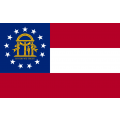Many nursing students can save money by attending a public college or university instead of enrolling in a private school. Public colleges and universities operate under the supervision of a state government and are typically funded by tax dollars and state subsidies. This enables them to have more affordable tuition and enrollment fees, especially for in-state students. The state of Connecticut is home to over 15 public institutions that offer nursing degree and/or certificate programs.
Latest articles
The state of California is home to some of the nation’s most prestigious private schools. Stanford University, California Institute of Technology, and University of Southern California are just a few. Many of the state’s top private schools are also home to some of America’s best nursing schools. Besides an excellent reputation and prominent programs in specialized fields such as nursing, many of these private schools offer more personalized attention than public schools thanks to smaller class sizes.
The state of California is home to the nation's top public university: University of California, Berkeley. Several other public California colleges are among the top 25 in the nation, and many are home to some of America’s best nursing schools. Choosing a public nursing school education in the state offers benefits that go beyond reputation. For starters, public universities in the state (and across the US) cost less.
When planning a nursing education path, prospective students often focus on the "here and now" and place cost at the top of their considerations. And while cost certainly is an important factor, we encourage nursing students to think of this education as an investment. In investing, the best strategies involve a long-term outlook. Nursing is no different. Though costs may be considerable in the short term, the return on investment can be considerable as well.
Entry-level nursing jobs can be achieved through a two-year (or less) course of study, while advanced nursing positions require an advanced degree. A two-year associate's degree program at a college or university provides students the opportunity to become a registered nurse; this in turn opens the door to continued training through a bachelor's degree program (BSN) or even a master’s degree and the title advanced practice registered nurse (APRN).
If your sights are set on joining the nursing profession, you may benefit from attending a public institution. Georgia has numerous state-supported schools that offer a broad spectrum of nursing programs, including licensed practical nursing (LPN) certificate, registered nursing associate's degree (ADN), and registered nursing bachelor’s degree (BSN). Many public universities also confer the title of advanced practice registered nurse (APRN) after completion of an additional two- to three-year master’s degree program.
Nursing is arranged in a hierarchy according to education and responsibility, just like many other professions.
The first level in the nursing hierarchy is the certified nursing assistant (CNA). CNAs provide basic quality-of-life care for patients. CNAs need a high school diploma / GED and a brief course of post-secondary training, after which they are required to pass a certification examination. CNAs in Georgia can expect an average salary of $21,910 per year.
Attending college or university costs more than just tuition. The term “total cost of attendance” captures the all-in price for one year of studies. In addition to tuition, typical expenses include room and board, books and supplies, miscellaneous fees, health items, clothes, entertainment, and travel.
Students' overall expenditures vary widely. Influencing factors include the type of educational institution (public vs. private), the length of the program (certificate vs. associate's vs. bachelor's), and the student's residency (in-state vs. out-of-state).
If you prefer a more personal learning experience, attending a private university could be the best option. In contrast to public universities, private colleges have smaller student populations and smaller class sizes. Private school students thus often receive more individualized instructor attention. They also frequently garner their first-choice classes. Attending required classes on an accelerated timeframe increases the likelihood of graduating on time (or even early).
The online magazine Salon recently reported that over the last 30 years, the cost of one year at college has increased by a staggering 1,200 percent. There are many cases where instead of a four-year education, the student could have purchased a house! Also, since most students must take out loans to finance their higher education, there is both principal and interest to repay.










